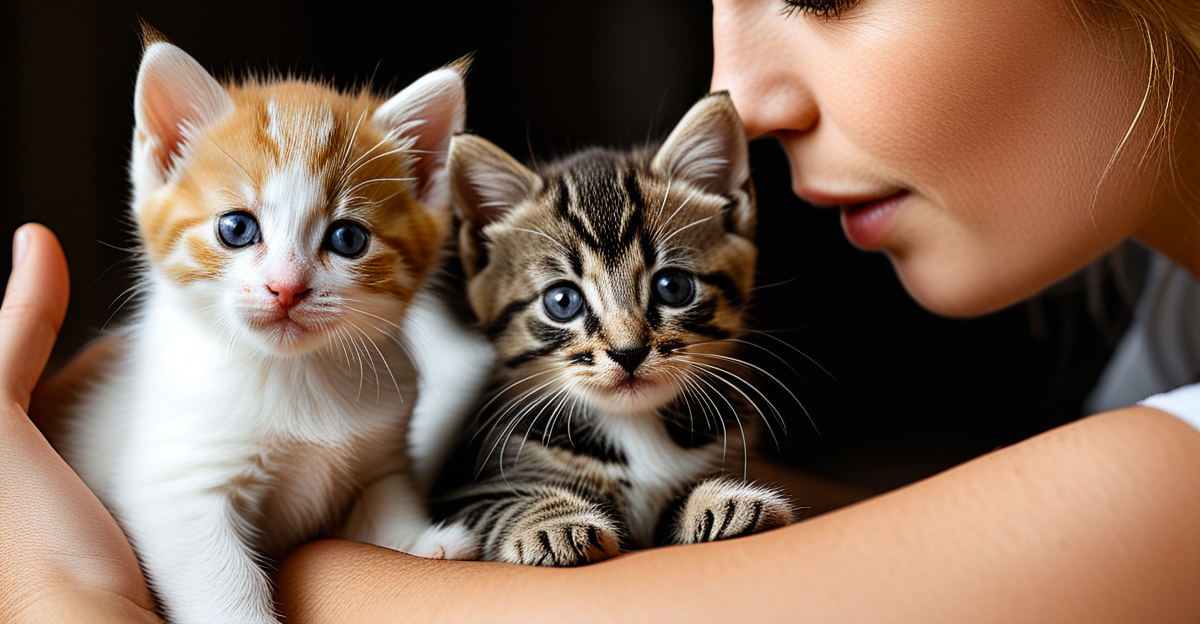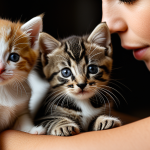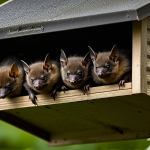Importance of Timely Care for Orphaned Kittens
Timely intervention in the care of orphaned kittens is crucial for their survival and healthy development. These vulnerable animals rely on humans for their basic needs, and early development sets the foundation for their growth. Ensuring immediate feeding is a top priority for orphaned kitten care, as it provides essential nutrients and energy required to keep their bodies functioning. Feeding should mimic the natural maternal schedule to promote proper digestion and metabolic rates.
Warmth is equally important for orphaned kitten care. Newborn kittens are unable to regulate their body temperature, making them incredibly susceptible to hypothermia. Providing a safe, warm environment immediately can stave off life-threatening conditions and support healthy early development.
In parallel : Creating a Safe Haven for Your Visually Impaired Cat: Expert Tips and Home Adjustments
Neglecting the early care of these kittens poses significant risks. Without timely intervention, they face delayed physical growth, weakened immune systems, and developmental issues. Even short delays in care can lead to irreversible damage, emphasizing the importance of prompt and appropriate action.
The nuances of immediate feeding and consistent warmth cannot be overstressed. These interventions not only safeguard against risks but also pave the way for promising futures, turning fragile beginnings into healthy, vibrant lives.
Also to discover : Ultimate Handbook for Early Cataract Detection and Treatment in Senior Cats: Proactive Vision Care to Protect Your Feline Friend’s Sight
Bottle-Feeding Techniques
Bottle-feeding orphaned kittens is a delicate process that necessitates attention to detail. Selecting the right feeding bottle is fundamental to ensuring kitten nutrition. Pet stores offer a variety of bottles, often with smaller, kitten-specific nipples that mimic a mother’s teat. This choice impacts how comfortably the kittens feed and can prevent ingestion difficulties.
Preparing Milk Formula
Proper preparation of the milk formula is another critical component. Commercial products like KMR (Kitten Milk Replacer) ensure balanced nutrition. If unavailable, a homemade formula can serve as a temporary measure. It’s crucial to follow a veterinarian-recommended recipe to ensure kittens receive essential nutrients.
Proper Feeding Position
The feeding position sets the stage for safe consumption. Always feed kittens in a prone position, similar to how they would naturally nurse, to avoid choking hazards. Understanding kitten anatomy aids in applying the correct pressure on the bottle, allowing for a smooth flow.
Mastering these feeding tips ensures that orphaned kittens receive the nutrition they need to grow robustly. Adhering to these guidelines can prevent complications and foster the healthy progress of vulnerable kittens.
Establishing a Feeding Schedule
Creating a structured feeding schedule is key to promoting kitten growth and ensuring nutritional needs are met timely. It’s important to tailor feeding frequency based on the kitten’s age. Newborns should be fed every 2-3 hours due to their small stomach capacity and high metabolic needs. As kittens age and grow, the intervals can gradually lengthen, accommodating their changing dietary requirements.
Consistency in nutrition timing fosters predictable routines which support both physical and emotional well-being. A stable schedule diminishes stress and allows for better digestion and absorption of nutrients. Observing each kitten’s response to feeding and making adjustments as necessary is crucial. For instance, weight check-ins help determine if the feeding routine supports their growth adequately.
Monitoring progress involves keen attention to their overall development. Adjust feedings if a kitten appears lethargic or fails to gain weight. Healthy kittens usually display energy and alertness. Therefore, regular monitoring helps maintain optimal nutrition levels and overall kitten health. Upholding a consistent feeding schedule not only aids in their growth but also guarantees the kittens thrive during their crucial early months.
Signs of Healthy Growth
Monitoring kitten health is vital, and tracking growth involves a keen eye on several indicators. Weight gain expectations for kittens should be consistent. Generally, kittens gain about 10-15 grams per day, which is a reliable benchmark. A steady increase indicates proper nutrition and healthy development.
Apart from weight, behavioural indicators are essential for assessing health. Healthy kittens typically exhibit energy, curiosity, and playfulness. They respond to stimuli and engage with their environment, showing signs of robust emotional development.
Observing developmental milestones aids in evaluating growth. For example, most kittens should be able to walk by three weeks of age and begin purring around that time as well. Achieving these milestones suggests healthy nervous system development and social progress.
For a comprehensive assessment, regular weight checks and behavioural observations are necessary. Deviations from expected growth patterns warrant a veterinarian’s attention. Consistent monitoring ensures that intervention is timely and growth is both healthy and consistent. Thus, understanding these cues offers insights into the well-being of kittens as they transition from infancy into more independent stages.
Socialization and Handling
The importance of early socialization for orphaned kittens cannot be overstated. Interacting with humans and other animals during their formative weeks is crucial for their emotional development, fostering confidence and adaptability. Kitten socialization should begin as early as possible to cultivate sociability and reduce future stress or anxiety.
Gentle handling techniques are necessary for orphaned kitten care. Start by holding the kitten in a secure but relaxed manner, ensuring they feel safe. Gradually introduce them to various textures and sounds, providing positive reinforcement through gentle strokes or treats. Encouraging these positive interactions builds trust and helps kittens become well-adjusted adults.
Incorporating playtime into their routine is also beneficial. Orphaned kittens thrive on playful engagement, which contributes to their physical and emotional growth. Use safe toys to stimulate their natural hunting instincts and develop coordination.
Social experiences should involve exposing kittens to different environments and people. This practice desensitizes them to new situations, laying a foundation for lifelong adaptability. Overall, timely intervention in socialization shapes a kitten’s ability to thrive in diverse settings, ensuring they grow up as resilient and friendly companions.
Hygiene and Health Monitoring
Establishing robust kitten hygiene standards is pivotal for preventing disease and ensuring healthy growth. Cleanliness in feeding areas is non-negotiable. Keep feeding bottles, bowls, and surroundings sanitised to reduce the risk of infections. A daily routine of washing and sterilising feeding equipment is recommended to keep germs at bay.
Regular health assessments are crucial in orphaned kitten care. Conduct thorough check-ups to observe any abnormalities such as changes in appetite, lethargy, or signs of distress. Being vigilant about these signals enables timely intervention and consultation with a veterinarian, if necessary.
Vaccination and veterinary visits form the backbone of preventive care. Ensure kittens receive essential vaccinations based on a vet’s advice, typically beginning around six to eight weeks of age. Vaccines protect against severe illnesses like feline panleukopenia and respiratory infections. Regular vet check-ups further assess kittens’ overall health, address any concerns early, and adjust care as they grow.
Incorporating these preventive measures into daily routines is essential for maintaining optimal health. Such practices not only avert potential health crises but also secure a strong foundation for the kittens’ future wellbeing.
Expert Insights and Resources
Delving into kitten care resources can equip caregivers with valuable knowledge to ensure the well-being of orphaned kittens. Various books offer in-depth guidance on nurturing practices. Titles like “The Kitten Care Book” provide comprehensive insights into orphaned kitten care, addressing nuances in nutrition, socialization, and health maintenance.
Engaging with online materials deepens understanding and offers additional support. Websites dedicated to veterinary guidance and pet care forums allow for community engagement, offering a plethora of experiences and solutions. Videos demonstrating timely intervention techniques are excellent visual aids for those looking to refine their caregiving skills.
Connecting with local shelters and rescue organisations presents the opportunity to access expert advice. Many organisations run workshops, providing real-world knowledge from experienced professionals. These engagements can serve as a reassuring support network, supplying not only educational resources but emotional support as well.
Consulting experts when faced with uncertainties or challenging scenarios is crucial. Veterinarians and trained animal caregivers can address specific concerns, ensuring that all caregiving methods align with the kittens’ best interests. Ultimately, equipping oneself with expert guidance and resources empowers caregivers to foster robust, thriving kittens.










